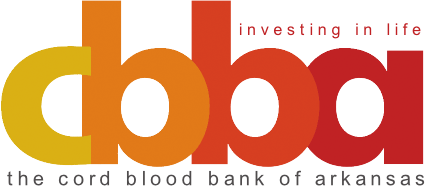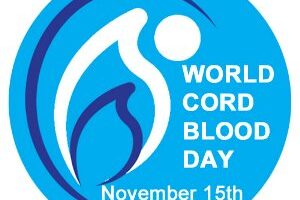The Cord Blood Bank of Arkansas (CBBA) celebrated more than the usual group of dedicated supporters at its annual sold-out luncheon July 16 at the Arkansas Governor’s Mansion, as the UAMS-housed organization honored its leader with an inaugural chair.
Michele Fox, M.D., director of Cell Therapy and Transfusion at UAMS and medical director of the CBBA, was presented the Michele Cottler-Fox, M.D. Chair in Regenerative Medicine and Cord Blood Banking as part of the luncheon’s program that honored supporters and those who have benefitted from life-saving cord blood transplants.
Fox used the occasion to make up for a lifetime of milestones that ended unceremoniously.
“My high school and college graduation ceremonies were cancelled by rain; my medical school had neither a white coat ceremony nor a formal graduation; my residency and fellowship programs had no formal end-of-program celebration,” Fox said. “So this investiture ceremony today is my surrogate for all of the others, and I would like to thank everyone for being here to share it with me today.”
UAMS Chancellor Dan Rahn, M.D., and College of Medicine Dean G. Richard Smith, M.D., led the investiture ceremony and praised the efforts of Fox that have made UAMS and Arkansas a national leader in this life-changing field.
“Thanks to Dr. Fox, Arkansans and UAMS are now in an elite, active network being looked upon nationally as a state model for promoting the use of umbilical cord blood cells,” Rahn said. “We are proud to have her with us and know this chair will help the Cord Blood Bank of Arkansas move into the future and continue growing the already-significant contributions cord blood has had on health care research and practice.”
The 2011 opening of the Cord Blood Bank of Arkansas at UAMS ensured that Arkansans statewide have the opportunity to donate cord blood cells for their family’s use, public use or for research purposes. Cord blood cells can be quickly, safely and painlessly collected from umbilical cords following the birth of healthy children. The umbilical cord, placenta and amniotic fluid, all typically discarded after birth, are rich in primitive cells that can be collected without destroying embryos. Umbilical cord blood has already aided in finding treatment for aplastic anemia, leukemia, lymphoma, lupus, thalassemia, sickle cell disease, spinal cord injury and Crohn’s disease, while research is still ongoing to find treatment for corneal degeneration, heart disease, stroke, multiple sclerosis, rheumatoid arthritis, Parkinson’s disease and Alzheimer’s disease.
Jennifer Maune, member and past president of the CBBA Advisory Board who helped write the Arkansas legislation to begin storing and researching cord blood, brought her 6-month-old daughter, Juliana, on stage while explaining the cord blood donation process.
“Because of her birth we were able to donate her cord blood,” Maune said. “Because of her life, we can give life to someone else. Something that was formerly considered medical waste and thrown away can save a life. It is so easy to donate; it is as simple as taking the time to fill out an application and taking the kit that they send you to the hospital when you deliver the baby. But unfortunately not everyone knows about this life-saving option, so there is much work to do.”
Maune introduced three others in attendance who have benefitted from cord blood donations — Amelia Odle, Hardin Bale and Ian Goza.
“The hope is that one day all prospective mothers will choose to donate their cord blood,” Maune said. “We need to get this message out to increase the awareness of cord blood donations and provide vital funding to the CBBA. The work is expensive but the rewards are life giving.”
For more information about cord blood, call (855) 854-2222 or (501) 686-6271 or visit www.cordbloodbankarkansas.org.




